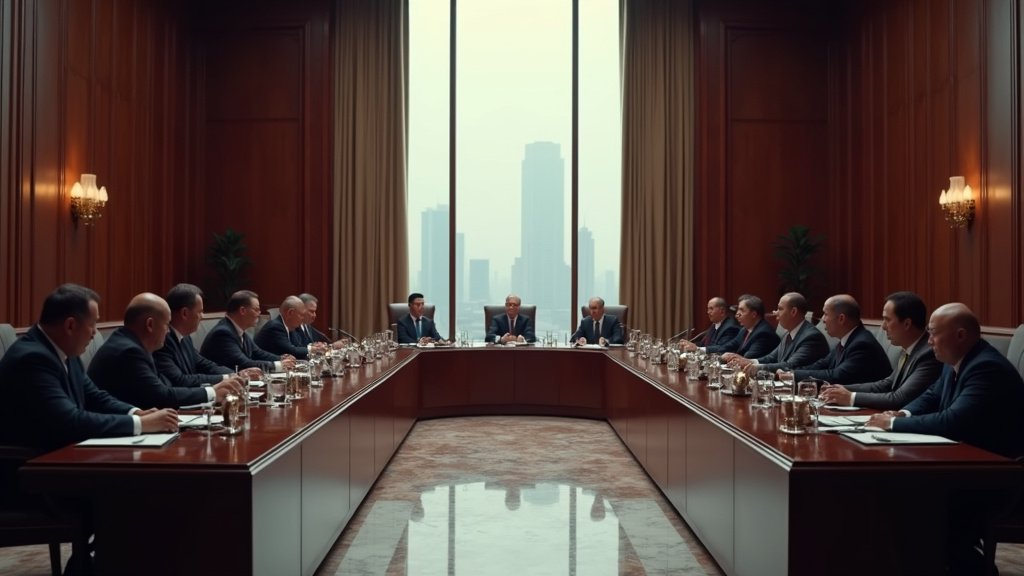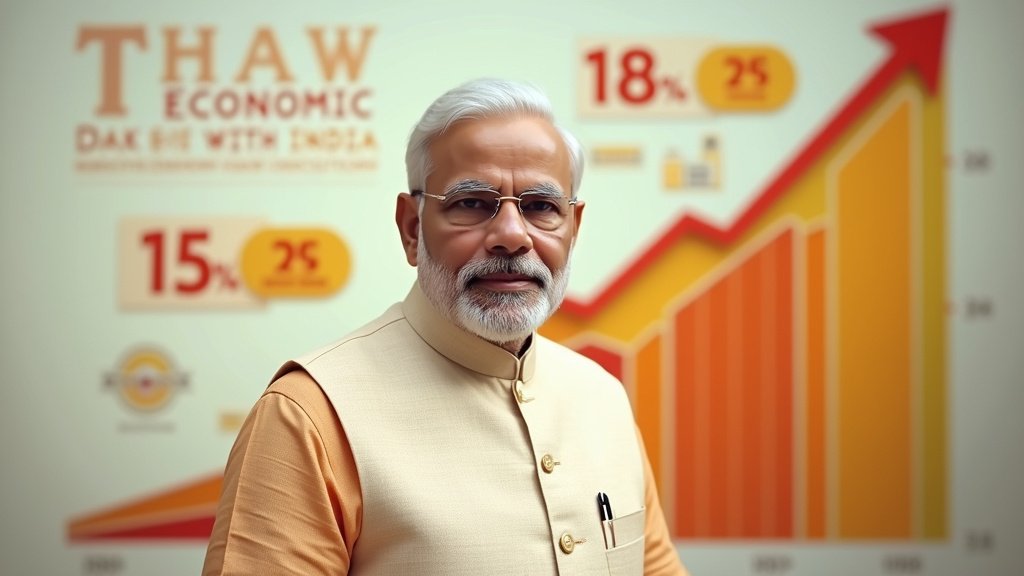On July 18, 2024, the historic Blenheim Palace in Oxfordshire, England, opened its doors to one of the most consequential gatherings of European leaders in recent years: the European Political Community (EPC) summit. This fourth EPC meeting was a significant step in fostering European unity, providing a platform for heads of state and government officials to address the continent’s most urgent issues, including support for Ukraine, energy security, and migration. With a venue steeped in history and symbolism, the UK government underscored its commitment to facilitating constructive dialogue and solutions to pressing continental challenges. Here, we dive deep into the summit’s agenda, its key discussions, and the potential long-term impacts of this monumental meeting.
Blenheim Palace: A Venue Rich in Symbolism
Blenheim Palace, a UNESCO World Heritage Site and the birthplace of former British Prime Minister Sir Winston Churchill, offered a stately and historically charged backdrop for the summit. The venue, known for its grandeur and architectural beauty, set the stage for discussions centered on modern-day European unity, echoing Churchill’s own dedication to peace and cooperation on the continent. By hosting the EPC summit at Blenheim, the UK signaled its intention to continue supporting and engaging with Europe post-Brexit, and to be a bridge-builder for common causes within the continent. The choice of Blenheim symbolized the continuity of British-European ties, even in an era marked by changing geopolitical landscapes.
A Clear and Urgent Agenda
The summit brought together over 45 heads of state and government officials, each with distinct national interests yet a shared purpose of fostering stability and progress across Europe. The agenda highlighted critical areas that are shaping European policy discussions, including:
1. Support for Ukraine
Since the onset of conflict in Ukraine, European countries have united in their stance against aggression, providing both humanitarian and military support. The summit continued this trend, with leaders reaffirming their commitment to Ukraine. Ukrainian President Volodymyr Zelensky’s attendance at the summit added urgency to the discussions. He addressed the gathered leaders, urging for more decisive action and unity in the face of ongoing threats. This segment of the summit highlighted not only the importance of supporting Ukraine’s defense but also the broader need to uphold European security principles.
2. Energy Security and Diversification
Energy security was another critical topic, with discussions centered on how to reduce Europe’s dependence on external energy sources. The recent energy crises have underscored the vulnerabilities in Europe’s energy supply chain, pushing leaders to explore strategies that ensure resilience and sustainability. Ideas ranged from enhancing renewable energy production to investing in alternative sources and cross-border infrastructure that would make Europe less susceptible to disruptions. With energy demands on the rise and geopolitical tensions affecting supply chains, leaders agreed on the need for a more self-reliant and diversified approach to energy production and distribution.
3. Migration and Border Security
Migration remains a complex and contentious issue across Europe, with varying perspectives on how to balance humanitarian responsibilities with security concerns. At the summit, the topic of illegal migration and channel crossings was extensively debated. The UK, represented by Prime Minister Keir Starmer, advocated for a humane yet pragmatic approach to handling migration, emphasizing the need for collaborative efforts to address the root causes. Starmer proposed a new agreement with France to manage and regulate Channel crossings, while French President Emmanuel Macron voiced a commitment to working closely with the UK and other European partners on this issue. Leaders across Europe recognized that while there is no simple solution to migration challenges, coordinated policies and partnerships are crucial to addressing the issue sustainably.
Bilateral Engagements: Reaffirming Alliances and Renewing Cooperation
The EPC summit also provided a valuable opportunity for bilateral discussions, where European leaders engaged in focused dialogues to strengthen alliances and reset relations in key areas.
UK-France Relations
The summit marked a new chapter in UK-France relations, with Prime Minister Keir Starmer and President Emmanuel Macron engaging in productive discussions on resetting diplomatic ties. Both leaders emphasized the importance of moving past Brexit-era tensions and fostering deeper cooperation in areas of mutual interest, particularly defense and security. Starmer proposed a renewed defense pact with the EU, reflecting the UK’s ongoing commitment to European security. Macron, meanwhile, highlighted France’s willingness to collaborate with the UK, especially in light of the Ukraine conflict, underscoring the importance of a united front against shared security threats.
Expanding Defense Cooperation
Defense was a focal point, with discussions on enhancing military coordination and capabilities. The leaders explored ways to revitalize defense alliances established over a decade ago, recognizing that evolving threats require renewed partnerships. Both the UK and France expressed a shared commitment to bolstering their defense readiness, strengthening the continent’s security against internal and external threats. The discussions underscored Europe’s recognition that, in an increasingly complex global environment, collective security and defense cooperation are indispensable.
A Royal Reception: King Charles Welcomes European Leaders
Adding to the significance of the event, King Charles hosted a reception at Blenheim Palace, bringing a royal dimension to the gathering. His presence symbolized the UK’s enduring ties with Europe and its dedication to fostering unity. The King met privately with Ukrainian President Zelensky and Prime Minister Starmer, discussing matters of importance related to European stability and shared interests. This royal reception offered a warm, collaborative atmosphere that underscored the UK’s role in European diplomacy and strengthened personal bonds among leaders.
Assessing the Summit’s Impact and Looking Ahead
The EPC summit, though an informal gathering, plays a crucial role in fostering dialogue and building consensus among European nations. While the EPC does not produce binding agreements, its importance lies in its ability to shape future policies and reinforce alliances. This summit at Blenheim Palace highlighted the collective will of European leaders to address issues that extend beyond national borders, setting the stage for greater cooperation in the future. By prioritizing security, energy resilience, and migration, the summit underscored Europe’s commitment to addressing these interconnected issues in a cohesive and strategic manner.
Looking forward, the next EPC meeting is set to take place in Hungary on November 7, 2024, with Albania scheduled to host the summit in 2025. These upcoming meetings will provide further opportunities for leaders to continue their work on shared challenges, evolving agendas, and regional stability. As the EPC continues to grow as a platform for European dialogue, the summit’s outcomes and discussions at Blenheim Palace are likely to influence the trajectory of future European cooperation.
A Vision for a Unified and Resilient Europe
The 2024 European Political Community summit at Blenheim Palace marks an important moment for European diplomacy and cooperation. The themes discussed—support for Ukraine, energy security, and migration—reflect some of the most pressing challenges facing the continent today. The summit reinforced the shared values and objectives of European nations, with leaders demonstrating a strong commitment to unity and a forward-looking vision.
This gathering of European leaders in the historic setting of Blenheim Palace showcased Europe’s resolve to navigate the complexities of a rapidly changing world. As the EPC evolves as a platform for addressing cross-border challenges, the spirit of collaboration and solidarity displayed at the summit offers hope for a secure and prosperous future for all European citizens.




